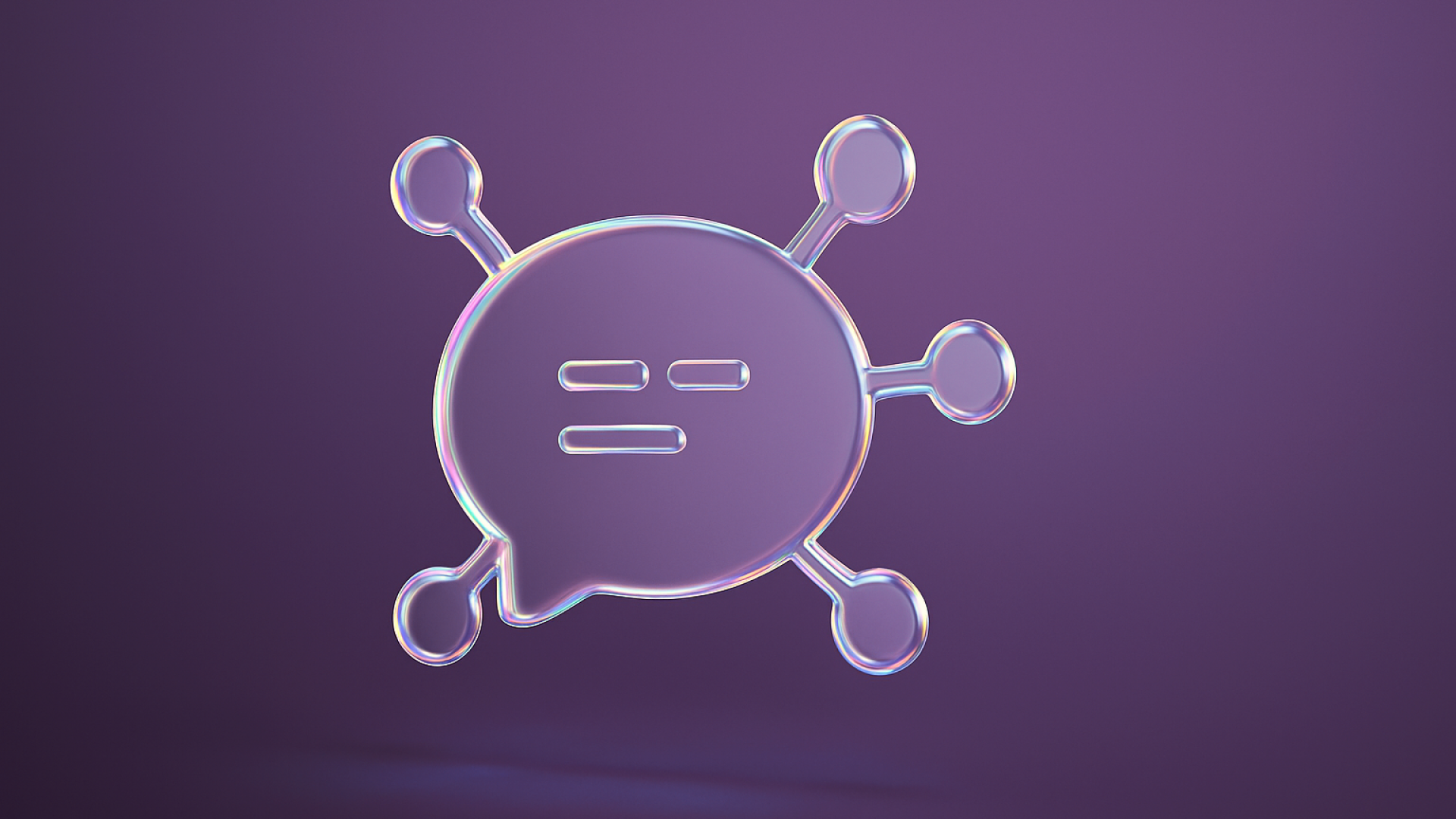Artificial Intelligence (AI) in the enterprise has long focused on efficiency and automation. But a shift is underway—toward AI that enhances how employees experience work itself. As consumer technology grows more personalized, employees expect the same from their workplace tools.
Too often, internal systems feel impersonal and fragmented, leading to frustration, disengagement, and lost productivity. Human-centric AI can close this gap by making work more intuitive, responsive, and tailored to individual needs.
At Tribe AI, we help enterprises design AI systems that put people first—turning employee experience into a competitive advantage.
Why Enhancing Employee Experience with AI Is an Imperative
Employee experience (EX) has become a make-or-break priority for companies seeking to attract and retain top talent. As competition intensifies, organizations are turning to AI for human-centric operations to create work environments people actually want to be part of.
Retention, Engagement, and Productivity Are Interconnected
The modern workplace contains too many variables for traditional, uniform approaches. Every employee navigates a complex web of systems, processes, and interactions daily. When this ecosystem creates frustration instead of flow, performance suffers and departures follow.
AI Can Personalize and Streamline at Scale
AI's true power lies in its ability to decode feedback signals, automate routine support, and surface individual needs across thousands of employees simultaneously, revolutionizing AI in HR. It creates "experience layers" that enable personalization that would be impossible through human effort alone.
In practice, this transformation manifests as:
- Customized Learning: Training that understands your career aspirations and suggests personalized learning paths that align with both your goals and organizational needs.
- Smart HR Support: Asking a question about parental leave at 2 AM and receiving an accurate, personalized response immediately.
- Early Warning Systems: A system that notices patterns indicating burnout, then proactively offers support before you reach a breaking point.
- Targeted Communications: Receiving only the information relevant to your role, location, and interests, rather than drowning in company-wide announcements.
Organizations that master these capabilities create a virtuous cycle: better experiences lead to higher engagement, which drives performance, which enables better experiences.
How AI Improves Employee Experience in Large Enterprises
AI for human-centric operations is revolutionizing workplace support systems in significant ways, including how companies have automated manual processes. Here are five key applications that directly enhance how employees experience their work environments.
1. AI-Driven Employee Support Assistants
The traditional employee support model—searching through policy documents or waiting days for HR to respond—creates needless friction. AI agents in the workplace eliminate these pain points:
- They provide immediate, contextual answers about policies, benefits, IT issues, and HR processes.
- They integrate with existing communication channels where employees already work.
- They're available 24/7, accommodating global teams and flexible schedules.
2. Intelligent Onboarding and Internal Mobility Pathways
Career development shouldn't feel like navigating a maze blindfolded, yet that's the experience many employees face. AI transforms this journey:
- New employees receive personalized onboarding pathways that adapt to their learning pace and prior experience.
- Current employees discover internal opportunities that match their unique skill profiles.
- Career transitions become smoother with targeted skill development recommendations that bridge specific capability gaps.
This personalization addresses a fundamental human need: to grow in ways that feel meaningful and attainable.
3. Sentiment Analysis and Employee Listening at Scale
In large organizations, leadership often loses touch with ground-level realities. AI changes the listening dynamics:
- Natural language processing identifies emerging concerns across communication channels, surveys, and feedback mechanisms.
- Managers receive early indicators of team sentiment without intrusive monitoring.
- Organizations uncover the actual drivers of engagement rather than relying on assumptions.
4. Meeting and Calendar Optimization
The average knowledge worker now spends most of their time in meetings, emails, and chats—leaving precious little time for focused work.
AI tackles this modern workplace epidemic:
- It identifies and protects essential focus time based on work patterns and deadlines.
- It captures meeting notes and action items automatically, reducing mental load.
- It helps prioritize which meetings are truly essential versus which could be handled asynchronously.
Tools like Asana's AI assistant and Microsoft Copilot are reclaiming hours of productive time each week.
5. Personalized Knowledge and Content Recommendations
Corporate knowledge bases often become information black holes—places where valuable insights disappear, never to be found again. AI is transforming knowledge management by surfacing the right resources based on an employee’s projects, past searches, and role.
It ensures that critical communications reach the right people through intelligent targeting and adapts content delivery to match individual preferences, whether that’s video, text, or interactive formats. This level of personalization extends to learning experiences as well, tailoring development opportunities to each employee’s role, aspirations, and learning style—reshaping how organizations support and grow their talent
How Tribe Helps Enterprises Build AI for Human-Centric Operations
At Tribe, we partner with forward-thinking enterprises to build AI systems that genuinely enhance employee experience. Our approach focuses on outcomes that matter: increased engagement, reduced turnover, and more fulfilling work environments.
Map High-Friction Workflows
We begin by working alongside your HR, IT, and operations teams to identify where employees encounter the most significant frustrations. Rather than assuming we understand these pain points, we:
- Observe actual workflows in their natural environment.
- Speak directly with employees across levels and functions.
- Analyze existing feedback, support tickets, and engagement data.
- Measure time spent on low-value administrative tasks.
This human-centered approach ensures we're solving real problems that matter to your workforce.
Build Secure, Scalable AI Assistants
Based on identified opportunities, we develop AI copilots specifically tailored to your organization's needs and culture. These assistants:
- Connect employees with answers and resources hidden within your organization's knowledge base.
- Reduce internal support ticket volumes by handling routine inquiries immediately.
- Integrate seamlessly with your existing systems like Workday, ServiceNow, Slack, and Microsoft Teams.
- Adapt to your organization's specific language, abbreviations, and processes.
Respect Permissions and Privacy
We build privacy protection into every layer of our solutions. Our approach to fine-tuning language models with internal content maintains strict access controls while delivering personalized assistance.
Our retrieval systems incorporate sophisticated permissions management that respects your existing security infrastructure, ensuring employees only see information they're authorized to access.
Track What's Working and What's Not
Every implementation includes robust measurement tools that track response accuracy, user satisfaction, time saved per interaction, reduction in support tickets, and impact on key employee experience metrics.
This measurement framework provides clear visibility into ROI while identifying opportunities for continuous improvement.
Align Tech with People, Not Just Process
We recognize that successful AI isn't just about technical integration—it must genuinely support the humans using it. Our cross-functional approach ensures our solutions:
- Feel natural and intuitive within existing workflows.
- Address actual employee pain points, not just organizational efficiencies.
- Enhance human capabilities rather than attempting to replace them.
- Create experiences employees actively want to engage with.
Humanizing Work Through AI
The workplace of tomorrow isn't about replacing humans with algorithms—it's about creating environments where technology removes the dehumanizing aspects of work. By using AI to enhance employee experience, we pave the way for more fulfilling work lives.
With thoughtfully implemented AI, organizations can listen at scale, deliver personalized experiences, free HR teams from repetitive tasks, and identify engagement risks before they manifest as resignations. The most successful deployments amplify human potential rather than replace it.
At Tribe AI, we connect organizations with premier AI experts to develop bespoke employee experience solutions.
Our global network of AI practitioners helps enterprises formulate strategies, scope projects, and deploy models that align with specific business goals. We offer comprehensive support from strategy to deployment, filling capability gaps with external expertise while enabling scalable, cost-effective innovation.
Frequently Asked Questions
What is human-centric AI in the enterprise context?
Human-centric AI refers to systems designed to enhance the employee experience by focusing on personalization, responsiveness, and support. Instead of merely optimizing efficiency, these tools help employees navigate work more intuitively and meaningfully.
How does AI improve employee experience in large enterprises?
AI improves employee experience by automating support, personalizing learning paths, analyzing sentiment across teams, optimizing meetings, and surfacing relevant information when and where it’s needed—all at enterprise scale.
Why is employee experience (EX) a priority for companies now?
As competition for talent grows, employee experience directly impacts retention, engagement, and productivity. Personalized, supportive work environments help companies attract and keep top performers.
Can AI support internal career growth and development?
Yes. AI can match employees with internal opportunities, recommend targeted skill development, and personalize onboarding and upskilling—making career growth clearer and more accessible.













